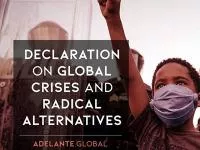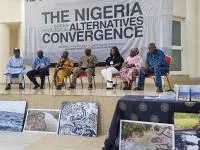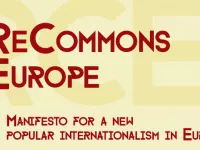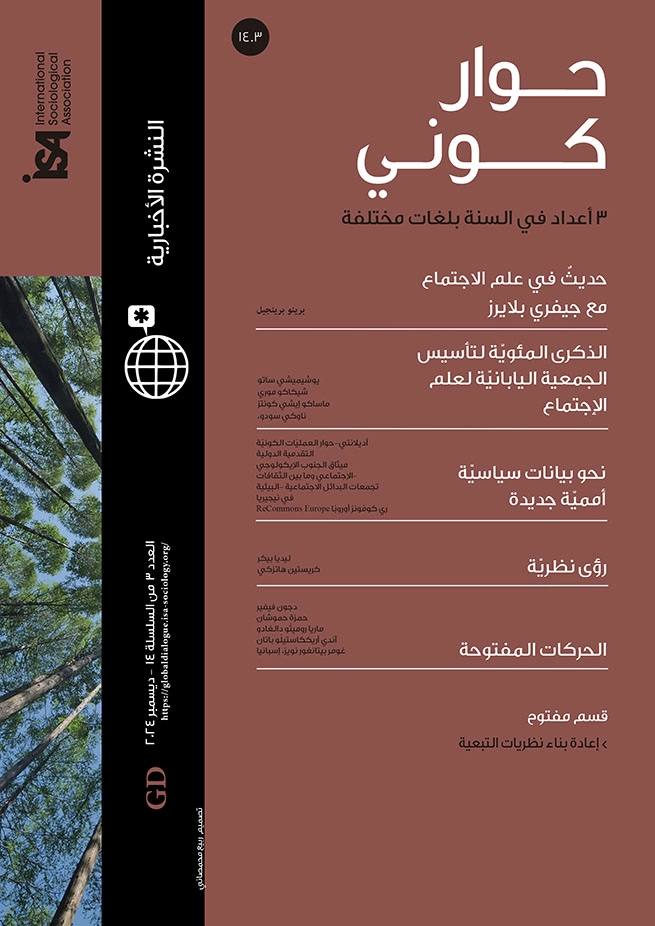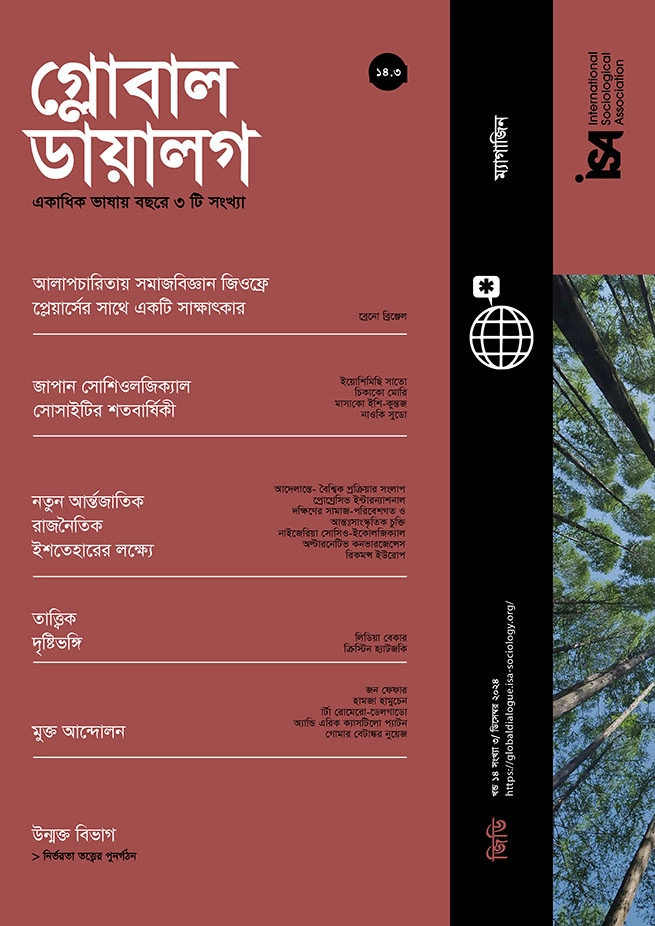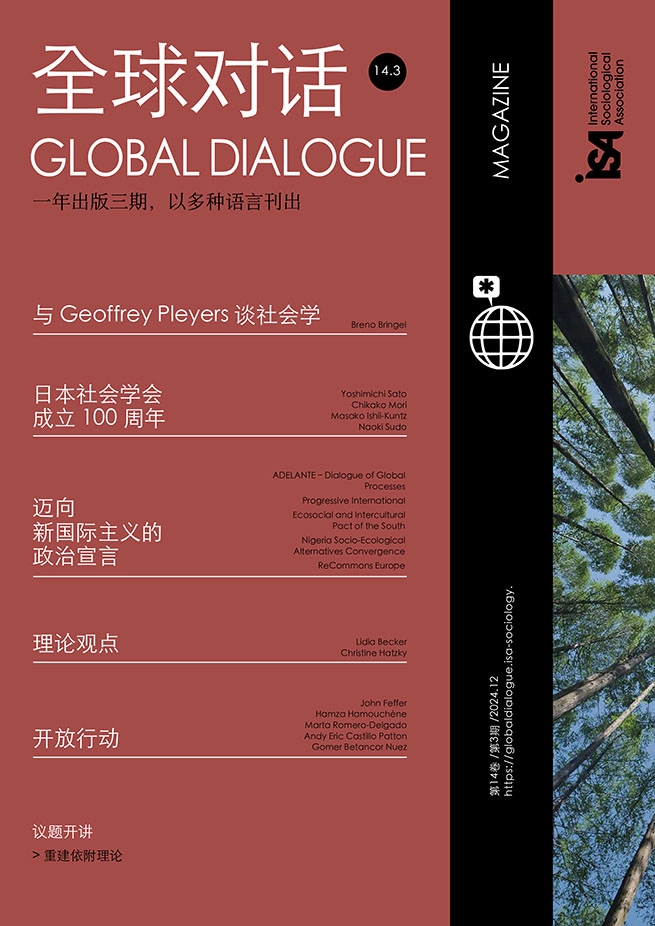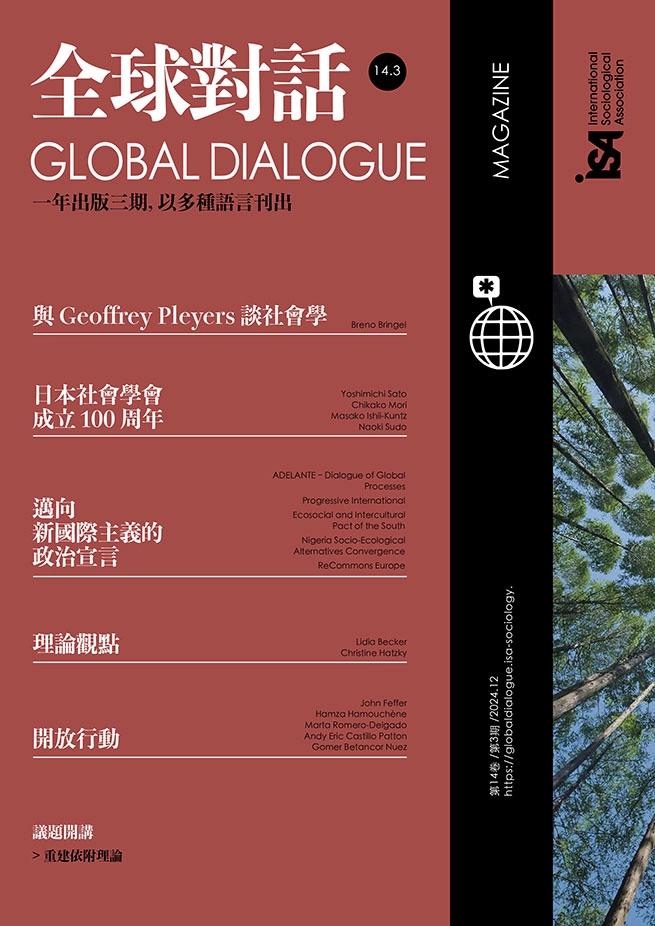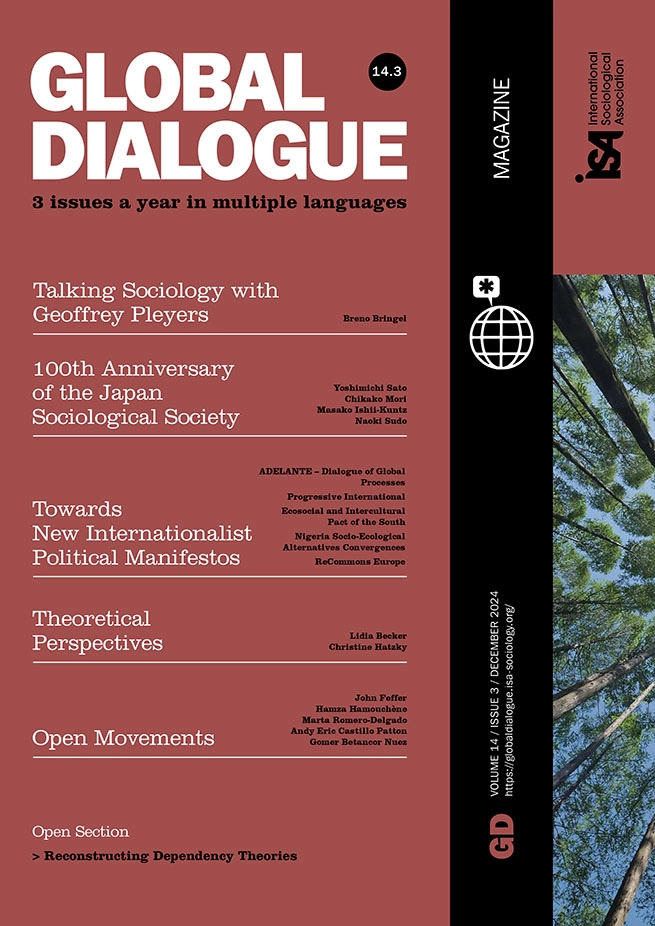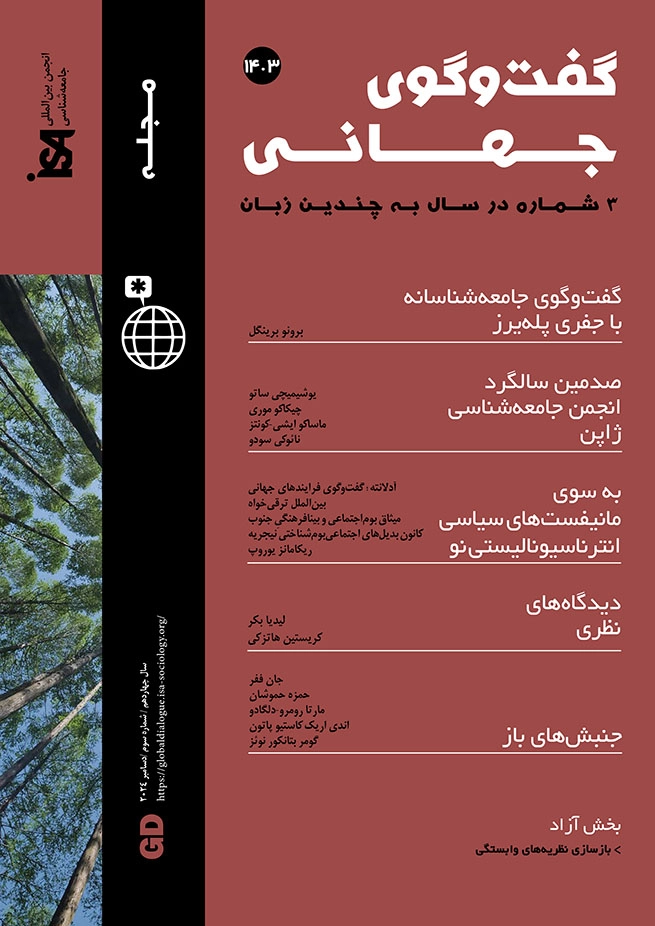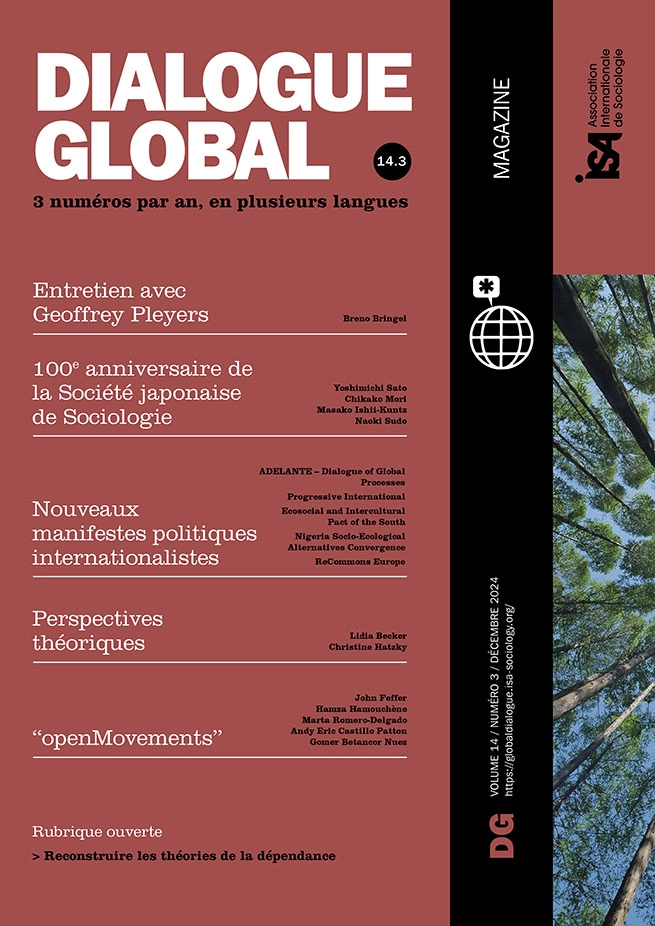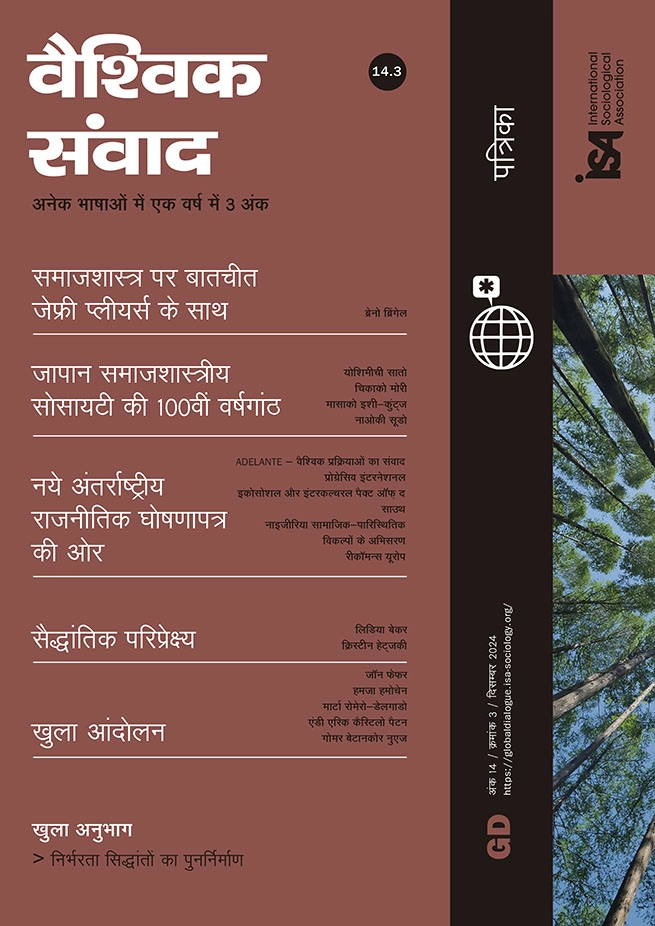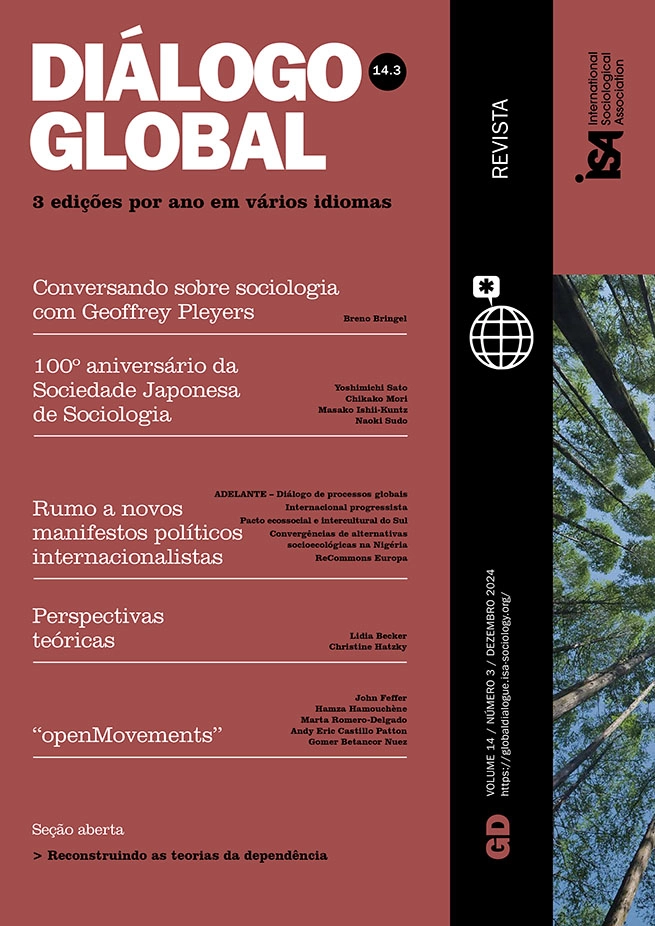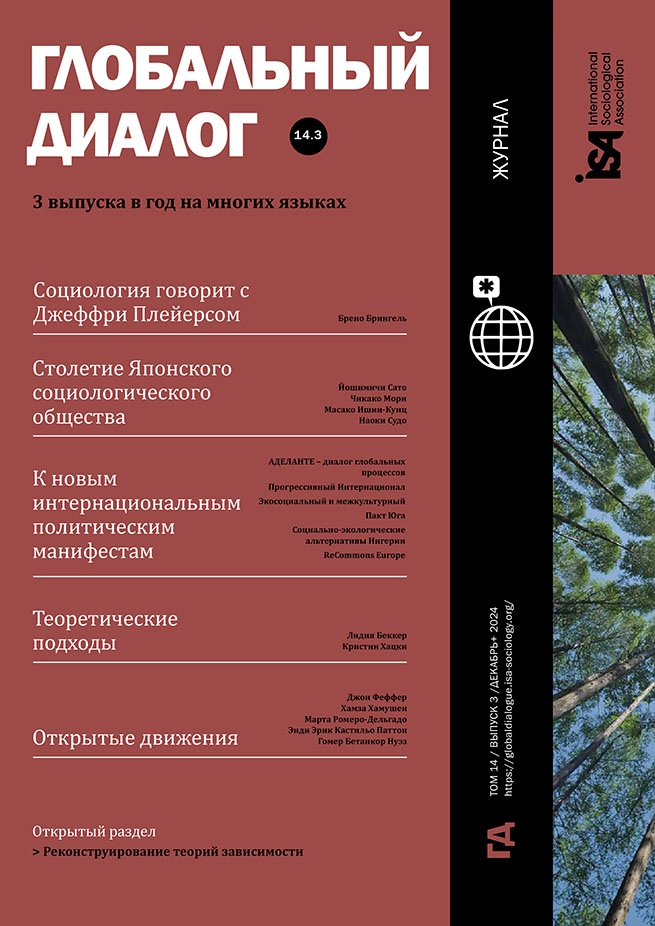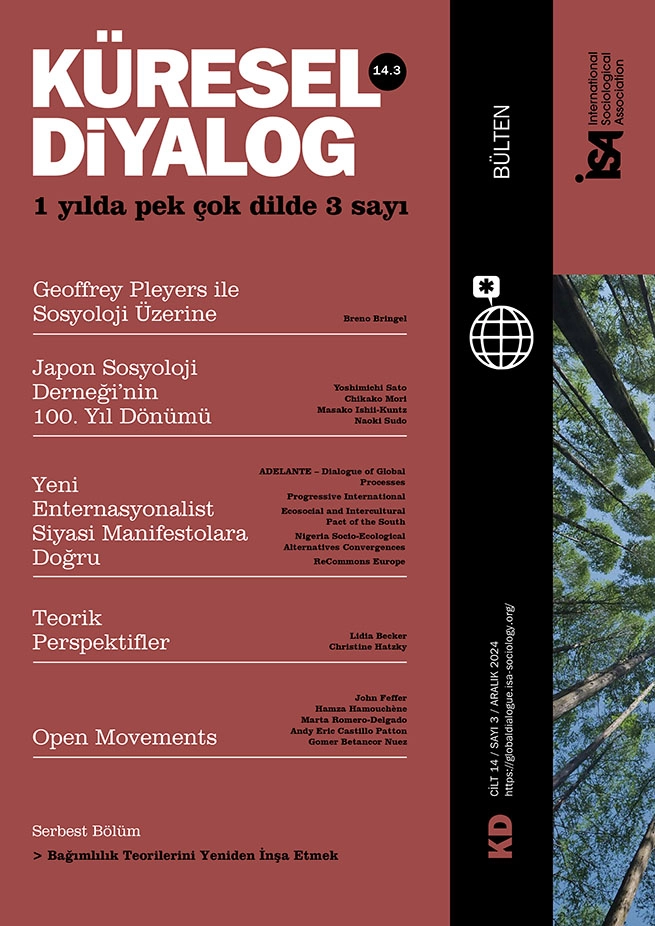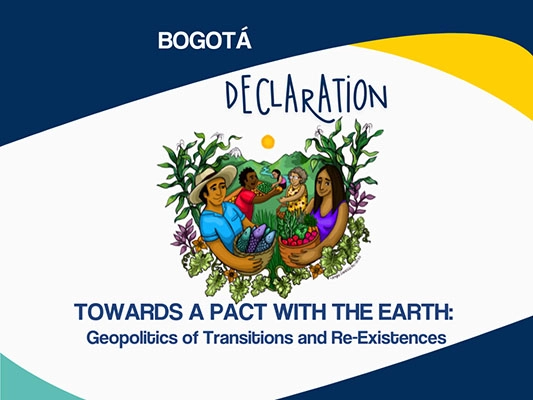After the onset of the COVID-19 pandemic, the “new normal” has been imposed with signs of chaos and instability. This new global status quo reflects the worsening of several interconnected crises (social, economic, political, ecological, health, and geopolitical), which reinforce each other while having a civilizational dimension. With great concern, we also observe a weakening of institutions and democratic practices worldwide, with a parallel strengthening of far-right ideologies and authoritarianism, as well as the perpetuation of a culture of war at various levels, deeply associated with capitalism, colonialism, and the exacerbation of patriarchy and racism.
Against the new culture of war
In the present historical moment, we must distinguish the different levels of war currently being fought.
The first of these is the war against life and Nature. Territories are being devastated by militarization and increasing violence, which is expressed with particular intensity on the bodies of women and defenders of Nature, especially when they belong to Indigenous or native peoples, or racially and ethnically marginalized communities, particularly Afro-descendants. In global and geopolitical terms, one of these wars, the invasion of Ukraine by Russia, exacerbated the energy, humanitarian, and food crises, while reviving the nuclear threat in a context of inter-imperial rivalry.
Likewise, the global advance of patriarchal, racist, transphobic, and xenophobic far-right ideologies, together with the increasing control of political systems by money and the rules of the World Trade Organization, have imposed the full primacy of capital – particularly in the financial, hydrocarbon, agribusiness, arms, automotive, corporate media, and pharmaceutical sectors, among others – over the rights of peoples and life itself. The same productive sectors that most clearly reflect this control by capital also bear the greatest responsibility in the war against life that characterizes neoliberal capitalism. Therefore, the struggle for a just ecosocial transition necessarily involves the defense of democracy in all its dimensions, from the institutional, international, national, and regional political spheres to the construction of forms of self-management and territorial and local autonomy.
Secondly, war is contributing to the exacerbation of both traditional and new forms of extractivism associated with the corporate “green transition.” What is now new lies in the fact that the energy transition of the Global North towards supposedly “clean” energy is expressed through increased pressure on the Global South to extract cobalt and lithium for the production of high-tech batteries, as well as other strategic minerals for the transition. This pressure is also evident in the demand for balsa wood needed to build wind turbine blades, or the competition for land surface areas for large-scale solar farms and new infrastructure for hydrogen megaprojects.
In recent years, different Green Deal proposals have proliferated; they are both diverse and heterogeneous. However, in general, they have become a framework of political–discursive confluence in the Global North to reduce carbon emissions and promote supposedly “equitable” and “sustainable” economic growth. Climate justice is often at the center of these Green Pacts, allocating funds for compensation to communities that have historically suffered negative environmental impacts. But too often, climate justice is restricted to a domestic vision. In its eagerness to transition to renewable energy, the Global North rarely considers the multiple impacts of this transition on the Global South.
This is how what Breno Bringel and Maristella Svampa call the “decarbonisation consensus” emerges: a process that, although it advocates a change in energy sources (from fossil fuels to “renewable” energy), deepens existing inequalities and continues the commodification of Nature. It is a consensus that aims to achieve decarbonization without changing the metabolic profile of society – patterns of production, consumption, circulation of goods, and waste generation – but rather involves an intensification of the exploitation of natural goods within the framework of an ideology of indefinite economic growth.
Given this scenario, we reiterate our claims recently presented in the South-South Manifesto for an Ecosocial Energy Transition. We also reaffirm the urgent need for a change of course in Latin America, and in the whole world, as demanded through the voices of the peoples in resistance and the recent outbreaks across different latitudes of our region. A superficial change, as proposed by hegemonic actors, is not enough. Currently, even large corporations are beginning to talk about a “just transition” and present the “decarbonization consensus” as an end in and of itself, concealing the fact that it reproduces the same logic of accumulation, dispossession, and exploitation. We need to unmask and strongly oppose the new advancements of “green capitalism,” committing ourselves to a radical transformation that recognizes and paves the way for other modes of existence in balance and reciprocity with the fabric of life.
It is urgent to reduce carbon emissions, but also to question the current social metabolism of capital. The hegemonic “transition” programs are based on corporate, technocratic, neocolonial, and even unsustainable conceptions that do not advocate structural transformations, let alone incorporate the planet’s natural and ecological limits. We at the Ecosocial Pact question these approaches and recognize the need to root socio-ecological transformation in a logic of global justice that is both critical and alternative to hegemonic proposals for ecological transition.
Our principles and agendas
In Bogota, during our first in-person meeting following the COVID-19 pandemic, we identified with the following principles: Principles of Equality, Justice, and Social Redistribution; Principles of Care, Interdependence, and Sustainability of Life; Principles of Reparation and Reciprocity; and Principles of Democracy, Self-Determination, Plurinationality, Interculturality, and Interspecies Ethics.
We also reaffirm our objectives and propose continuity in the following themes and agendas for action:
1. We are committed to giving centrality to the care paradigm in the organization of our societies.
We refer to all forms of care: interpersonal care, self-care, and the care of non-human beings who share this planet with us in interdependence. Care is fundamental for restoring relational and ecosystemic balances. All of us require care at certain moments or phases of our lives, an aspect systematically overlooked by the patriarchal/neoliberal narrative of the autonomous individual subject. Care, as a key aspect of well-being, should be actively assumed and shared by all members of society, regardless of gender, deconstructing its attribution as a supposedly feminine task. Thus, within the dynamics of patriarchy, women (especially poor, racialized women; indigenous women; and those who are marginalized) have assumed almost total responsibility for care, with an overload of work in the area of reproduction that affects living conditions. Care should be recognized and valued as a set of essential tasks for life and happiness, as became evident again during the pandemic. This does not automatically translate into remuneration and incorporation into the market or the state sphere, as the fact that many forms of care exist outside the realm of capital accumulation is a seed for the construction of societies beyond capitalist logics. Assuming collectively or in community some aspects of care and life reproduction is the basis for the construction of the commons, as shown by many experiences in Latin America. This does not mean that states should not generate care policies that strengthen these community spaces, assume responsibility for more specialized care or promote care as a central aspect of social well-being.
2. We consider it essential to address the ecological debt and the e(x)ternal debts in the framework of a just ecosocial transition from the Global South.
No climate justice or socio-ecological transformation is possible without including reparations for and abolition of these debts. The COVID-19 pandemic highlighted the debt problem and the urgent need for real solutions, not just temporary or very short-term relief. We understand that it is necessary to question and rethink the current geopolitics of ecosocial transitions via integral strategies that guarantee horizons of dignified life for all in terms of integral, ontological justice, and reparations. Far from reducing geopolitical gaps, hegemonic transition proposals run the serious risk of deepening colonial and ecological debts with the Global South. To make progress on the path towards lasting solutions, it is necessary, though not sufficient, to demand the cancellation of external debts of Global South countries, citizen-led audits, and repeated denunciations of violence and corruption related to external debt. In summary, our proposal seeks to systematize those contributions that see the issue of ecological debt reparations and the cancellation of foreign debts as an opportunity to rethink the reorganization of the international financial system, based on patterns of environmental and geopolitical justice.
3. From the beginning of our actions, as an Ecosocial and Intercultural Pact, we have insisted that no ecosocial transition is possible without social justice and environmental justice being seen as two sides of the same coin, aiming at a profound socioeconomic transformation. In the short term, however, some transitional proposals are necessary, including the introduction of a universal basic income that places the issue of citizenship center stage and is based on progressive tax systems for its feasibility and proper functioning. It should not be forgotten that Latin American countries have a regressive tax system, based on indirect or consumption taxes which primarily affect the most vulnerable. Large fortunes, inheritances, environmental damage, and financial income are all tax sources that receive little or very low presence in national tax systems. The most recent data indicate that tax evasion in Latin America costs close to 300 billion dollars in lost revenues (6.1% of the regional GDP), and that 27% of wealth is located in tax havens. Meanwhile, the COVID-19 crisis has further intensified inequalities. In our region, the richest 10% of individuals concentrate 55% of the wealth. Logically, wealth concentration is correlated to pollution, since the richest 10% of the world’s population emits almost half of all greenhouse gases. Introducing a universal basic income is a necessary strategy for redistribution and poverty alleviation, but must be part of a more comprehensive transformation towards the decommodification of life, expanding free public infrastructures and the commons.
4. We know that no country can save itself alone. “Climate nationalism” and discourses of “national sovereignty” often conceal the deeper problems of an ecological crisis. In order for necessary policies to have a real impact on populations, bring about changes in the balance of social forces, and tackle the major challenges of our historical time, new forms of political dialogue and regional cooperation must be developed, involving a significant part of civil society. We defend plurinationality and sovereign regional integration, prioritizing local economies and aiming for selective decoupling from the global economy. Following the proposals of different Latin American organizations, we believe that we must move towards the construction of a Regional Fiscal Pact that fundamentally reconfigures the current fiscal system in all jurisdictions in an equitable direction, opening the door to urgently needed social and environmental reforms that can reduce the many and persistent inequalities. Without this, there is no possible path to a just and comprehensive ecosocial transition.
5. Necessary transitional policies in the short term must be considered alongside the mode of production. We must problematize the current industrialization processes in Latin America and the consequences of being the factory of Global North countries. The establishment of true sacrifice zones with high toxicity is facilitated by industrial development in specific areas of countries like Mexico, Brazil, Argentina, and Chile, not just by the primary export-oriented extractivist model. The risk of this being extended to more countries is high in view of the dispute between China and the United States for “natural resources” and labor in Latin America, which will continue to demand raw materials and exacerbate the exploitation of commodities.
6. This topic also leads us to consider what alternative production proposals would allow us to move towards other responses that consider interspecies ethics and question the power relations characterized by domination and exploitation of non-human sentient beings. This current model is legitimized by an anthropocentric view that categorizes non-human living beings as inferior and transforms them into objects, products, and private property at the service of human beings and the capitalist system. An example of this are the livestock, fishing, pharmaceutical, tourism, and textile industries that exploit animals as a workforce or transform them into products, prioritizing their economic performance while disregarding their quality of life and dignity.
7. Ecosocial transitions cannot be limited to the energy issue. It is essential to enact a structural transformation of the energy system, but also of the productive and urban model, as well as of the links with Nature: deconcentrate, deprivatize, decommodify, decentralize, depatriarchalize, de-hierarchize, deracialize, repair, and heal. To achieve this, we must disconnect our economic, social, and cultural structures from fossil fuels, the mandate of Nature exploitation, and developmentalist and El Dorado-inspired imaginary. We must understand the current socio-ecological crisis not only as an acceleration of climate change, but also as a crisis of diversity (species extinction) and an unsustainable food regime.
8. Energy is a right and energy democracy is a horizon for sustaining life networks. Ecosocial justice should aim to eliminate energy poverty and entails a dismantling of power relations that continue to prioritize access for a privileged group of society. In a short time, fossil fuels will be stranded or obsolete assets. In a just energy transition horizon, leaving fossil fuels underground and “deescalating” the processes of hydrocarbon exploitation (in its new and old forms) imply a rupture of meaning to redefine Nature as something other than a mere provider of resources.
9. Effective decarbonization is necessary, but it should move away from commodification and not consolidate new forms of extractivism and sacrifice zones in the Global South. We must be attentive to “false solutions,” as shown by the limits and ambivalences of renewable energies (lithium and minerals for transition) and all emission compensation schemes. This includes the consensus reached by corporations and states in spaces such as the COP to implement controversial energy models for the Global South that include green hydrogen, smart agriculture, carbon markets, geoengineering, and other proposals aimed at maintaining the current energy power relations between the Global North and the Global South.
10. We believe that a just ecosocial transition, as a process of comprehensive transformation, is not and cannot be a promise for the future. Transitions are already happening via a multitude of experiences in communities and territories in both rural and urban areas, as well as through territorial resistances around the world against the continuity of the hegemonic model and false solutions. We urgently need to map out and strengthen these processes of re-existence linked to community energy, agroecological projects, urban gardens, distributed generation, and alternative economies, to name but a few.
11. A central pillar of the transition is to promote agroecology to transform the agri-food system through the creation and promotion of green belts of ecological agriculture in cities and towns, thereby generating employment and guaranteeing healthy, safe, and cheap food. Furthermore, this promotes autonomy and food sovereignty through production and distribution systems aimed at empowering local agroecological markets used by small farmers and solidary producers that foster an associative and community culture and citizen (co-)responsibility for production, participatory certification or guarantee systems, and consumption.
12. We live in cities planned by and for real estate speculation (the other side of this coin is the housing emergency and lack of green spaces) and dominated by the dictatorship of the automobile (with insufficient and overcrowded public transport). This characteristic has placed urban life under the spotlight and underlines the need for a radical change in the way we live in metropolises. We must ruralize urbanity, especially in large cities where the connection with Nature is practically non-existent. Through the Ecosocial and Intercultural Pact of the South, we propose the “right to a city with ecological justice” to change the way we live, feed ourselves, move, and relate to each other in urban areas. To achieve this, we advocate a new type of ecological and democratic urbanism that is capable of producing effective socio-environmental changes in: water metabolism (equitable access to water and water governance), the dynamics of urban flows (better waste and pollution management, sustainable forms of mobility and local healthy food production by stimulating urban agriculture and direct contact with small-scale producers), and urban infrastructure (accessible, ecological, and dignified housing, and urbanization approaches that address socio-spatial segregation and the cycle of poverty, inequality, and violence).
13. While local commitment to the transformation for life, the strengthening of autonomy, and the demand for states to respect and guarantee these legally, culturally, territorially, and budget-wise are a necessary condition, they need to be expanded and strengthened at different scales (regional, national, Latin American, and international). To achieve this, it is essential that we continue to move forward with the identification and defiance of common enemies, while also identifying convergent discursive and political frameworks for transformative struggles. Internationalism and an exchange of experiences between different regions of the world are fundamental to avoid political isolation and provide stronger global responses. In this process, it is important to identify the different types of allies in transformative struggles, including actors at different governmental levels, but always respecting the protagonism of eco-territorial struggles.
14. Finally, we are convinced that a fundamental part of the Ecosocial and Intercultural Pact of the South is the legal recognition of the Rights of Nature. In other words, human beings must recognize Nature as a subject of rights (and not as a mere object) with which to coexist harmoniously, respecting its rhythms and capacities. This also implies moving towards an ethics of care, which, within the framework of relational ontologies and the new climate challenges, must also be defined as an interspecies ethics, which contemplates the pluriverses, our being in and with other human and non-human sentient beings.
In summary, our aim is to contribute to the construction of a regional and global agenda oriented towards truly just transitions, which require participation and popular imagination, as well as intersectionality between the struggles of different generations and types, social and intercultural groups, feminists, and environmentalists. This will undoubtedly involve not only an in-depth debate on all these issues, but also the building of permanent political North–South and South–South dialogues, together with other geopolitical bases, based on a redefinition of multilateralism in terms of solidarity, reciprocity, equality, interdependence, and eco-dependence.
With an open sensitivity to the processes of change underway in our region – with bursts of hope and new popular impulses – but also aware of the weight of retrograde and oligarchic forces, we at the Ecosocial and Intercultural Pact of the South will continue to promote protests and proposals, criticism and alternatives, resistances and re-existences in the Pluriverse. To do so, we have resumed the relational narratives and horizon concepts that have been forged in recent decades through different struggles and always standing alongside them: the rights of Nature, good living, redistributive justice, care, just transitions, autonomy, post-extractivism, eco- territorial feminisms, food sovereignty, and autonomy.
We do not defend just any Pact. Ours is not the hegemonic Green Pact of agreements and deals among the dominant actors, but a Pact with the Earth, from and for the Global South. It is a Pact understood as a commitment to other ways of being and existing in the world.
Ecosocial and Intercultural Pact of the South
The Bogotá Declaration was drafted following the Annual Assembly of the Ecosocial Pact of the South held in Bogota, Colombia, in March 2023. More information about the Ecosocial Pact of the South can be found on its website or on its X, Facebook and Instagram networks.
